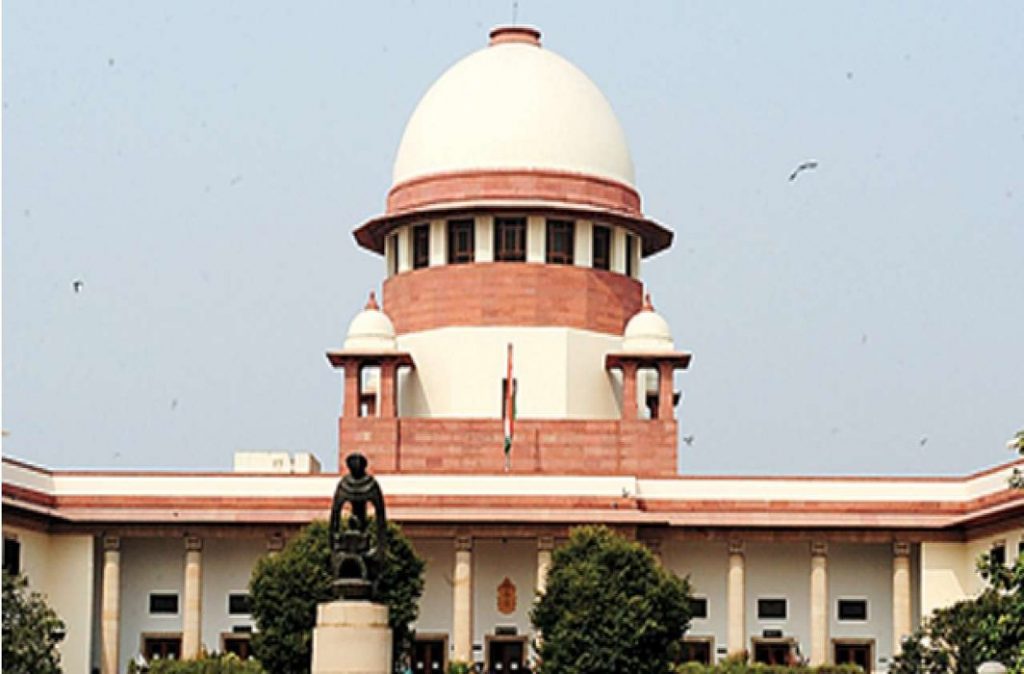New Delhi: The Supreme Court resumed Monday its exercise of framing questions relating to discrimination against women in various religions and made clear that it was not discussing the issue of entry of women of all age groups into Sabarimala temple in Kerala.
A nine-judge bench headed by Chief Justice SA Bobde has been hearing several senior lawyers on the issue of framing of larger legal questions to be deliberated upon by it relating to discrimination against women in various religions.
“The Sabarimala review case is not before us. We are not deciding Sabarimala. We are deciding the larger questions,” the bench said when senior advocates FS Nariman, Kapil Sibal, Shyam Divan and Rakesh Dwivedi opposed the hearing on the so-called larger issue relating to discrimination against women in various religions.
A five-judge constitution bench, by a majority of 3:2 November 14 last year, had referred to a larger bench the issue of discrimination against women in religions such as denial of entry of Muslim women into mosques, the practice of female genital mutilation in Dawoodi Bohra Muslim community and denial of rights to Parsi women who have married outside their religion.
At the outset, Nariman said the question whether women of all age groups can be allowed entry into the Sabarimala temple has been already decided by the Supreme Court in 2018 and the subsequent review has also been dealt with and hence, this cannot be adjudicated afresh.
The bench, which also comprises justices R Banumathi, Ashok Bhushan, L Nageswara Rao, MM Shantanagoudar, SA Nazeer, R Subhash Reddy, BR Gavai and Surya Kant, said that it will also consider the objection of Nariman as one of the issues.
Nariman said the apex court cannot club other issues with Sabarimala and it cannot frame questions in a review and bring in new issues.
“Scope of review is very restricted. This will set a new precedent. How can you think about other issues in a review?” Nariman said.
To this, the CJI said, “No. We will not be deciding these issues. We will only interpret articles involved in these cases.”
Sibal, appearing for the All India Muslim Personal Board, said that though Muslim women are allowed entry into mosques, the issue of essential religious practice is broad enough to be decided by this court.
The Article 25 and 26 (fundamental rights to religion) of the Constitution are part of the fundamental rights which are enforceable against state action, he said.
“A lot of petitions have been filed saying Nikah Halala is bad. Somebody is saying polygamy is bad. How the bench will decide the issue,” Sibal said. To this, the bench said, “That is why we have set up a nine-judge bench. That is why we are hearing you.”
The bench said it was only going to decide the interpretation of those articles which have been invoked in Sabarimala.
During the hearing, which is still continuing, Sibal asked, “How do you interpret Article 21 (right to life or personal liberty), 17 (abolition of untouchability) and 14 (equality before law)? Any statement that you make will impact everyone across the country. It will impact the caste system. How do you decide?” He further stated these are the matters which will have an impact across the country and all religious denominations.
The apex court January 13 has asked four senior lawyers to convene a meeting to decide on the issues to be deliberated by it in the matter.
PTI
